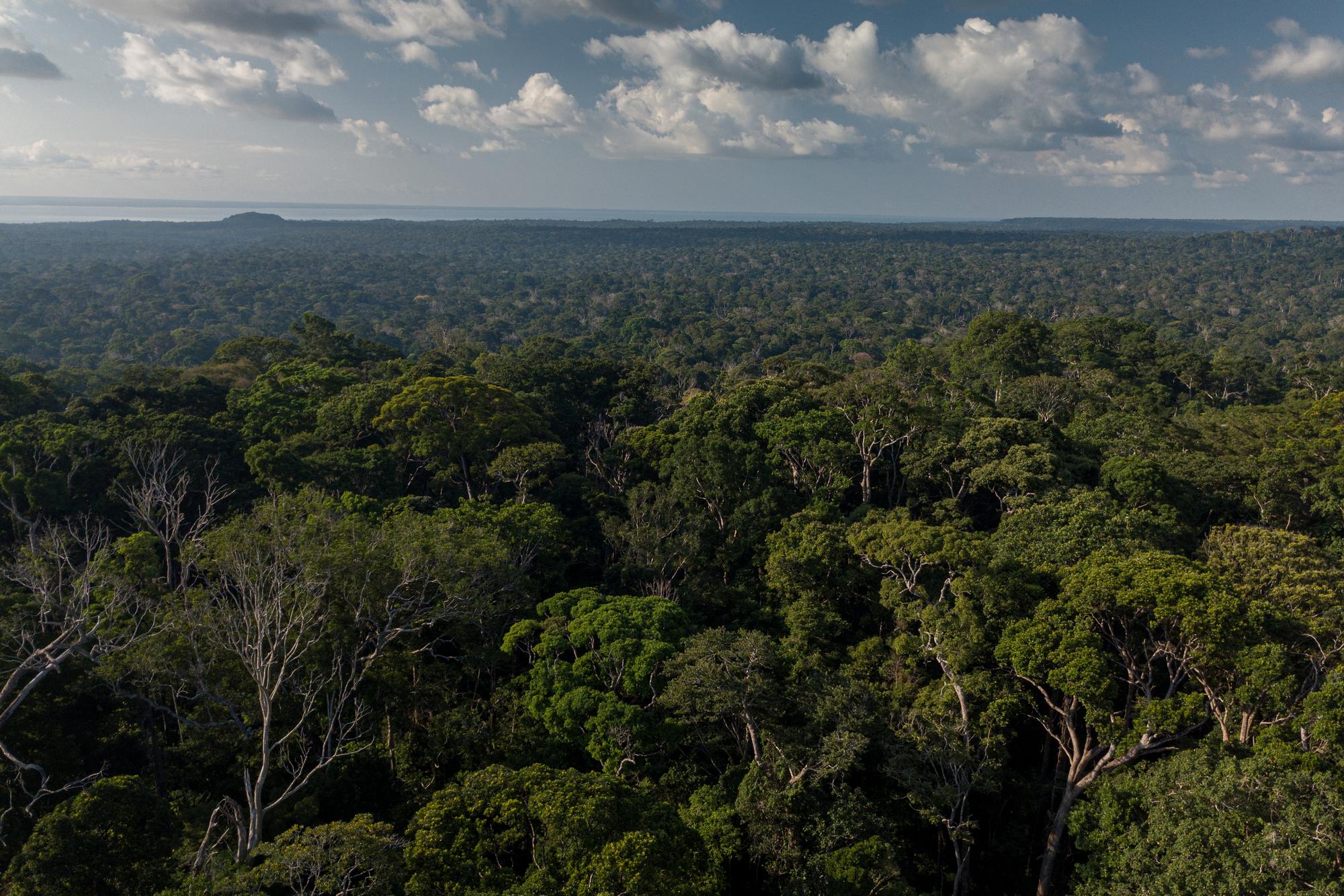By Will McCarry
July 18, 2022
News spotlight: Record deforestation could forever transform the Amazon
4 min

By Will McCarry
July 18, 2022
4 min
Editor's note: News about conservation and the environment is made every day, but some of flies under the radar. In a recurring feature, Conservation News brings you one important story from the past week that you don’t want to miss.
Brazil’s rainforests are in serious trouble. New satellite data reveals that an area six times the size of New York City has been cleared in the first half of 2022, report Gabriela Sá Pessoa and Kasha Patel for the Washington Post. That is the highest deforestation rate in the country since 2016.
In recent years, deforestation in Brazil has surged as the government has weakened environmental protections and cut budgets for environmental agencies, paralyzing the country’s ability to prevent illegal logging. A study by Conservation International found that 4 percent of the country’s protected areas have been legally downgraded or reduced in some way.
The pattern of deforestation across Brazil and other Amazonian countries has pushed the rainforest into a vicious cycle: As large areas are cleared of trees, the forest loses its ability to retain moisture and recycle water back into the atmosphere. This, combined with climate-driven rising temperatures, contributes to longer periods of drought, which in turn spur more intense fire seasons.
If this cycle of destruction continues year-over-year, the rainforest could be pushed to an ecological tipping point, transforming permanently into a dry savanna. Roughly 15 percent of the Amazon has been deforested so far, and some scientists believe that the tipping point could occur after 20 to 25 percent of the forest is lost.
And once we reach this critical juncture, climate impacts will only accelerate.
“We are approaching tipping points in ecosystems all around the world,” said Conservation International climate scientist Will Turner. “For example, as the gradual loss of permafrost and forest coverage continue to occur, these losses will snowball toward ever greater impacts, eventually pushing our planet into irreversible change.”
“Suddenly, we won’t just have some coral reefs dying, but all of them dying at once, globally,” Turner continued. “We won’t just have a little bit of melting ice, but the entire collapse of very large ice sheets. And in the Amazon rainforest, which we’ve been clearing substantially for decades now, increasing temperatures and changing precipitation could lead to total collapse.”
This scenario would be disastrous for the Earth’s climate. A recent Conservation International study revealed that the Amazon rainforest stores more irrecoverable carbon — that is, carbon that could not be restored within our lifetimes if emitted —more than any other region on Earth.
“These tipping points remind us that everything in nature is connected,” Turner said. “Of course, the upside here is that our solutions can also have compounding effects. When we protect these forests, we fuel the Amazon’s ability to maintain itself, while also powering the planet’s most effective natural engine for storing carbon. We have the tools to reverse this trajectory — the time is now to put them to use.”
Read the full article here.
Will McCarry is a staff writer at Conservation International. Want to read more stories like this? Sign up for email updates here. Donate to Conservation International here.
Cover image: Tapajós National Forest, Pará, Brazil (© FLAVIO FORNER)
FURTHER READING:
Join our community
Hear from scientists and changemakers, step into stories of experts in the field, and come closer to the awe-inspiring power of nature. By subscribing, you agree to our terms of use.